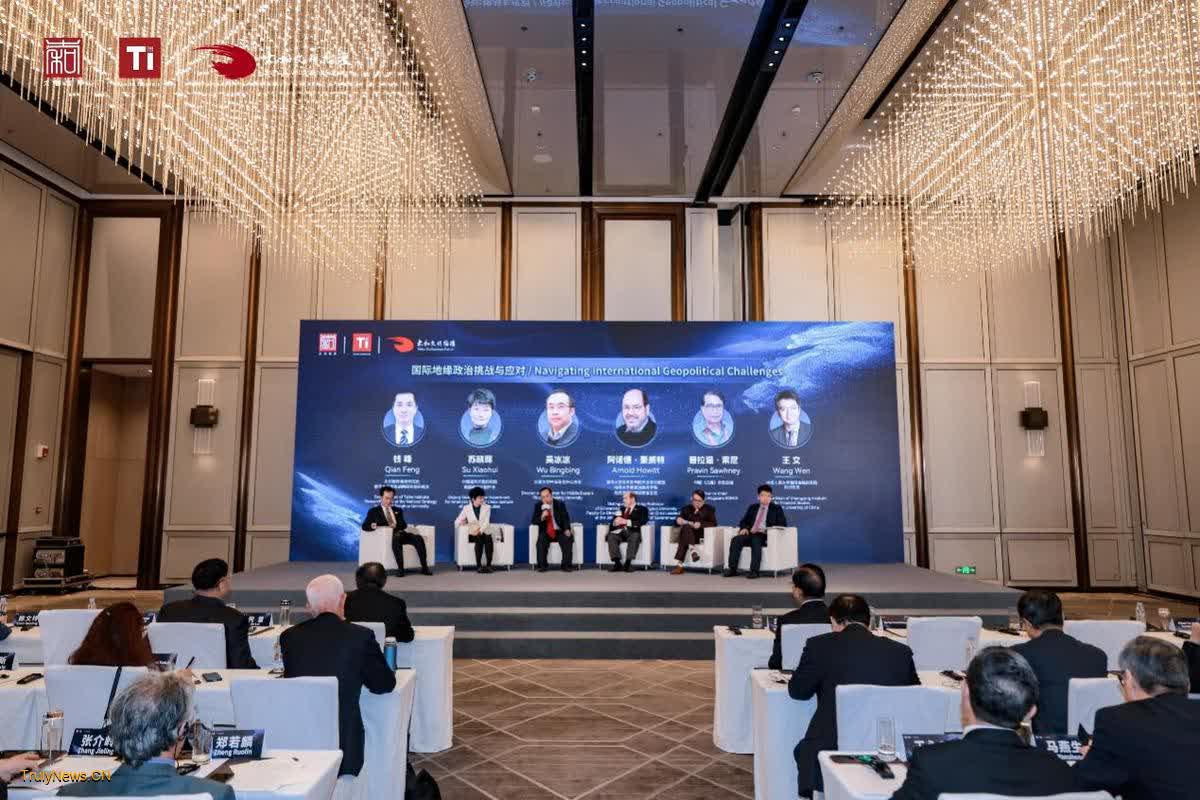
The eighth Taihe Civilizations Forum concluded its Sub-Session on International Relations on Sept 20, which was held in Beijing. It brought experts together to discuss the theme “Navigating the Changing International Political and Economic Landscape for Security and Development”.
In his keynote address, Wu Hailong, president of the China Public Diplomacy Association, gave a critical analysis of US geopolitical strategy, asserting that the US’ approach aims to form alliances against China while neglecting its own domestic issues. The attempts to “decouple” from China not only fail to address domestic challenges within the US, but also underestimate China’s technological resilience. He urged the US to re-evaluate its fixation on competition, advocating for peaceful coexistence and collaborative development as essential paths toward a more stable global landscape.
Transitioning to regional dynamics, Nurlan Yermekbayev, deputy secretary-general of the Shanghai Cooperation Organization, emphasized the organization’s commitment to the “Shanghai Spirit”, which promotes mutual trust and respect for diverse civilizations. He noted that the SCO has become an essential platform for enhancing regional cooperation and maintaining global stability amid the growing number of geopolitical challenges.
Liu Zhenmin, China’s special envoy for climate change, highlighted the fragmentation of the global economy due to geopolitical tensions and supply chain disruptions. He pointed out that, despite these challenges, economic globalization remains resilient and stressed the importance of regional economic integration as a countermeasure.
Siyabonga Cyprian Cwele, South Africa’s ambassador to China, advocated for a reformed United Nations that better reflects current geopolitical realities, particularly the rise of developing nations. He emphasized the necessity of strengthening commitments to multilateralism to effectively tackle shared global challenges.
Zhou Li, former vice minister of the International Department of the CPC Central Committee, discussed the growing volatility in international relations, particularly between the US and Russia. He noted that developing countries are increasingly standing together, seeking collective action to protect their rights and extend their influence.
Looking ahead, Chen Wenling, chief economist at the China Center for International Economic Exchanges, forecast significant shifts in the global economic order over the coming decade. She pointed out the rise of the Global South as a key driver of economic growth and underscored the need for a restructured international monetary system that is less dominated by the US dollar.
In light of these challenges, participants recognized the urgent need for multilateral cooperation to address the complex issues facing the world today. They emphasized that emerging economies will play a crucial role in creating a more balanced and collaborative international order. By promoting dialogue and partnerships, attendees expressed hope for a future where security and development are closely linked as nations navigate the complexities of global relations.
Liu Weining contributed to the story.